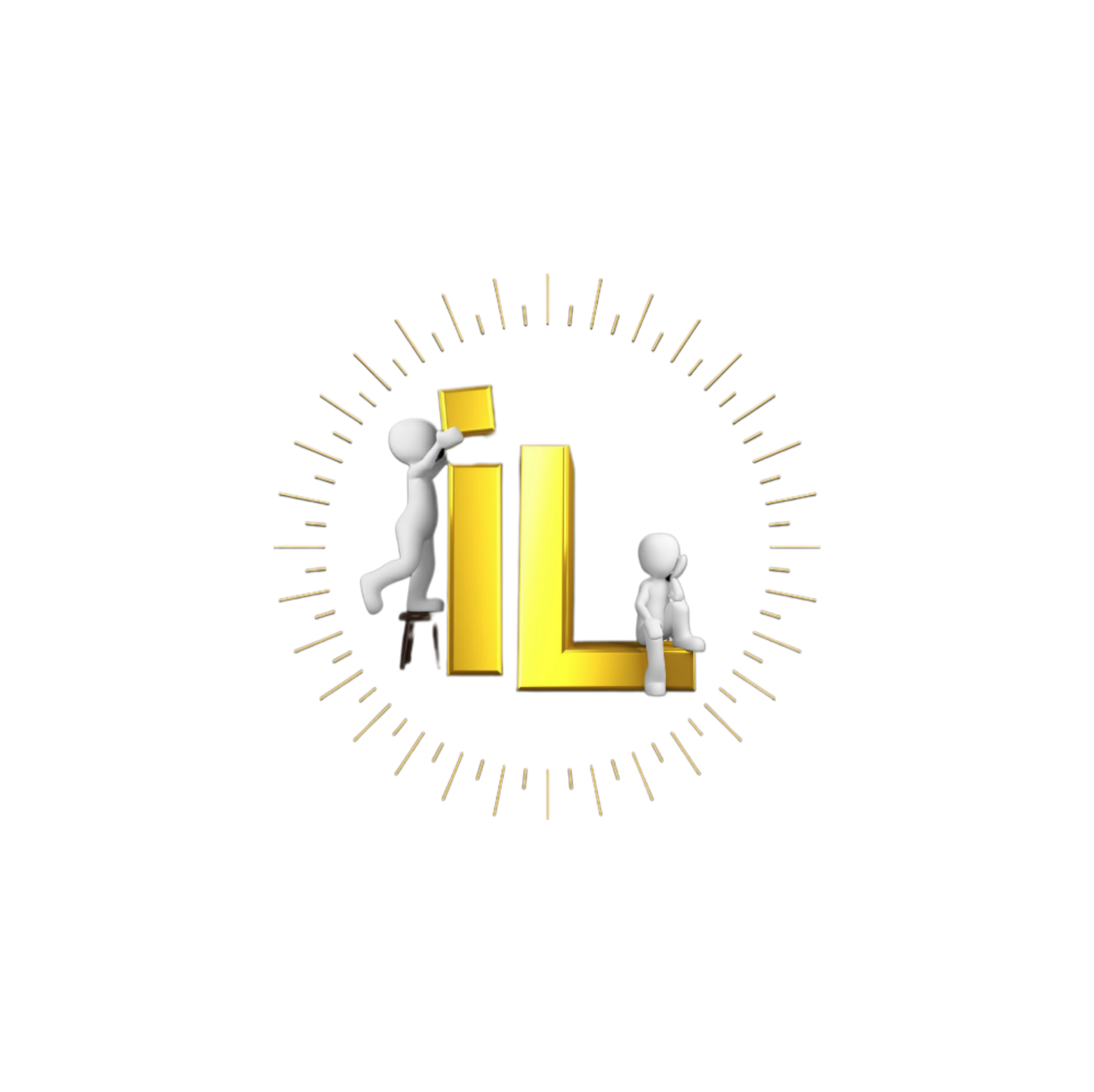Addiction Recovery: As the New Year comes, many with addiction or substance abuse seek a fresh start. Getting professional help is often the first step towards sobriety. The path to recovery is tough, but with the right treatment and support, it’s possible to beat addiction and live a fulfilling life. Options like inpatient or outpatient rehab and therapy are common for those seeking help.
Regular exercise, a balanced diet, and enough sleep are key to staying sober.
A serene landscape depicting a sunrise over a peaceful path winding through a forest, symbolizing hope and new beginnings. Alongside the path, vibrant wildflowers bloom, representing growth and healing, while gentle sunlight filters through the trees, illuminating the way forward. In the distance, a tranquil river flows, reflecting the light of the dawn, conveying a sense of calm and renewal.
Support groups like Alcoholics Anonymous (AA) and Narcotics Anonymous (NA) provide a sense of belonging and support. Having a supportive network of friends and family is vital for encouragement and emotional support. Family members at meetings and appointments help build a strong recovery foundation.

Key Takeaways
- Seeking professional help is the first step on the road to sobriety
- Inpatient or outpatient rehab and therapy are common treatment options for addiction recovery
- Support groups play a crucial role in addiction recovery
- Regular exercise, a balanced diet, and sufficient sleep are essential for maintaining sobriety
- Avoiding isolation during the recovery process is crucial for successful and happy outcomes
- Education about addiction and its effects is an important tool in recovery
- Individual or group therapy with addiction counselors can help address root causes of addiction
Understanding Addiction and Its Impact on Life
Addiction Recovery is a complex condition that affects not just the person but also their loved ones. It’s a chronic disease that changes the brain’s structure and function. Knowing about addiction is key to recovery. It means recognizing signs like increased disease risk, mental health issues, and even death.
Support groups, recovery staff, sponsors, and mentors are crucial. They help individuals stay on track and feel part of a community during recovery.
Genetic factors play a big role in addiction risk, accounting for about half. Environmental factors, like family and friends, also impact addiction risk. Early drug use, especially in teens, increases addiction risk due to brain development.
Combining treatment medicines with behavioral therapy, like counseling, offers the best chance of success.
The Importance of Support Groups
Support groups are vital for recovery, offering a sense of community and accountability. They, along with recovery staff, sponsors, and mentors, help individuals stay on track and overcome challenges. The second source highlights the importance of supported recovery, stating that support groups, recovery staff, sponsors, and mentors help those in recovery stay accountable and feel a sense of community.
Nearly 23 million Americans, almost one in 10, are addicted to alcohol or other drugs.
Recognizing the Signs of Addiction
Recognizing addiction signs is crucial for early intervention and treatment. Common signs include increased disease risk, mental health disorders, and even death. Seeking help from professionals, like addiction counseling and support groups, is essential to overcome addiction and achieve mental health and wellness.
| Signs of Addiction | Effects on Mental Health |
|---|---|
| Increased risk of diseases | Mental health disorders |
| Mental health disorders | Death |
Taking the First Step Toward Recovery
Getting help is often the first step to a sober life. It’s key to talk to a healthcare provider, therapist, or addiction specialist. They can help figure out the best addiction treatment plan for you. Joining a support group like Alcoholics Anonymous (AA) or Narcotics Anonymous (NA) can give you a sense of belonging. It also lets you learn from others who have stayed sober.
Recovering from Addiction Recovery can take many tries. You might need to try different things before finding what works for you. Important steps in recovery include:
- Getting addiction support from friends, family, or a support group
- Dealing with issues that might be causing your addiction
- Finding healthy ways to cope and manage stress
- Creating a strong support system and a sober social network
Using addiction resources like treatment programs and support services is also important for staying sober. By starting your recovery journey and seeking help, you can move towards a healthier, happier life.
Building Your Support Network
Having a strong support network is key for those in recovery. It can greatly lower the chance of relapse. Your network can include family, friends, and professionals like therapists and counselors. They offer guidance, support, and encouragement during your recovery journey.
Studies highlight the importance of a support network in preventing relapse. Creating a social support network helps in reconnecting with damaged relationships from addiction. Ways to build this network include joining recovery meetings like AA or NA, and responding to support messages.
When searching for a support network, look into recovery programs and rehabilitation centers. These places offer a safe space for recovery. They provide the tools and resources needed to beat addiction and stay sober. Plus, addiction recovery programs offer a community feeling, which is crucial for those in recovery.
- Reducing the odds of relapse in addiction recovery
- Providing guidance and accountability throughout the recovery process
- Offering a sense of community and connection
- Assisting in re-engaging with damaged relationships caused by addiction
Creating a Personal Recovery Plan
Overcoming addiction therapy for drug addiction or alcoholism needs a solid plan. A personal recovery plan sets clear goals and helps manage triggers. This boosts the chance of staying sober. It should include a schedule to keep you organized and focused on your journey.
Setting treatment goals is a key part of a recovery plan. These goals should match your needs and goals, making the plan personal. A good plan also helps you understand your addiction, stay on track, and find support after treatment. Important parts of a recovery plan include:
- Setting treatment goals
- Identifying triggers
- Planning to manage triggers
- Enlisting support
- Detailing treatment methods
Having a detailed addiction recovery plan is key for lasting sobriety. By sticking to your plan and getting support, you can beat alcoholism or drug addiction. This way, you can live a fulfilling life.
Remember, addiction therapy is a lifelong journey. A strong recovery plan is crucial for staying sober and achieving long-term success.Addiction Recovery
The Role of Professional Addiction Treatment
Professional addiction treatment is key to recovery. It offers inpatient and outpatient programs for different needs. These programs give a supportive place for people to beat their addiction. They have experienced professionals and group therapy.
Getting professional help and joining a support group is vital. It greatly boosts the chance of successful recovery.
Finding the right treatment facility is crucial. Look for one that fits your values and needs. Research, read reviews, and talk to experts in the field. A Master’s in Counseling Addiction Counseling Specialization is important for professionals.
Addiction counselors do detailed assessments to create personalized treatment plans. They need at least a bachelor’s degree, but a master’s is preferred for clinical roles.Addiction Recovery
Key parts of professional addiction treatment include:
- Rehabilitation programs, which provide a structured environment for recovery
- Addiction counseling, which helps individuals address underlying issues and develop coping mechanisms
- Support groups, which offer a sense of community and connection with others who are going through similar experiences
These elements help people get the tools and support they need. With the right treatment and support, they can beat their addiction. They can live a fulfilling life beyond addiction.
| Treatment Type | Description |
|---|---|
| Inpatient Programs | Provide a structured environment for recovery, with 24/7 support and guidance |
| Outpatient Programs | Offer flexible scheduling and support, while allowing individuals to maintain their daily routines |
Developing Healthy Coping Mechanisms
It’s key to have healthy ways to cope for staying sober and keeping good mental health. Activities like mindfulness, managing stress, and exercising are vital in addiction therapy. About 48.5 million American adults aged 12 or older had a substance use disorder in 2023. This shows how crucial recovery programs are.
Some good ways to cope include:
- Mindfulness meditation and yoga to handle stress and cravings
- Doing physical activities, like exercise or sports, to feel better
- Practicing gratitude and journaling to deal with negative feelings and stress
Finding healthy ways to cope is important. Try new hobbies, meet new people, and build a sober network. With good coping mechanisms, you can handle stress, fight cravings, and stay sober. This leads to success in your recovery programs.
A serene nature scene depicting a diverse group of individuals engaged in various recovery activities, such as meditation, hiking, and group support, surrounded by lush green forests and a tranquil river, radiating a sense of hope and renewal.

Managing Triggers and Preventing Relapse
Triggers in addiction recovery can lead to cravings and relapse if not managed. It’s important to know what triggers you. This means recognizing people, places, and situations that make you want to use substances.
Having an emergency plan can keep you safe and sober when things get tough. This plan might include getting help from support groups, talking to friends and family, or calling rehab centers for advice. Mindfulness and self-care can also help you deal with stress and cravings better.
Here are some ways to handle triggers:Addiction Recovery
- Journaling to track emotions and identify patterns
- Challenging intrusive thoughts and reframing negative self-talk
- Setting personal boundaries to maintain a healthy environment
- Seeking advice from addiction resources and rehabilitation centers
By managing triggers, practicing mindfulness, and taking care of yourself, you can lessen cravings. With the right support and resources, like support groups and rehab centers, you can beat addiction and stay sober for good.
Physical and Mental Wellness in Recovery
In addiction recovery programs, focusing on physical and mental health is key. The Eight Dimensions of Wellness model shows that wellness covers many areas. These include emotional, spiritual, social, financial, intellectual, environmental, and occupational wellness. By tackling these areas, people can recover fully, dealing with addiction’s physical, emotional, and mental sides.
Eating right and exercising regularly are vital for physical health in recovery programs. Foods like water, fruits, veggies, lean proteins, whole grains, and low-fat dairy help after detox. Vitamins B-12 and A are also important for cell growth and a strong immune system. Healthy habits can boost physical health and lower relapse chances.
Mental wellness is also crucial in mental health recovery. Mindfulness, stress management, and emotional control help face recovery’s challenges. Yoga, meditation, or creative activities can reduce stress and anxiety. Focusing on mental health helps build self-confidence and improves life quality.Addiction Recovery
Some important ways to keep physical and mental health in recovery include:
- Regular exercise, like walking or jogging
- Mindfulness and meditation practices
- Eating a balanced diet with whole foods
- Getting enough sleep and having a healthy sleep schedule
- Building a strong support network of friends, family, and peers
By using these strategies daily, people can enhance their physical and mental health. This reduces relapse risk and improves life quality. With the right support, overcoming addiction and achieving lasting recovery and wellness is possible.
| Dimension of Wellness | Description |
|---|---|
| Emotional Wellness | Ability to recognize and manage emotions |
| Spiritual Wellness | Sense of purpose and meaning in life |
| Social Wellness | Ability to build and maintain healthy relationships |
| Financial Wellness | Ability to manage finances and achieve financial stability |
| Intellectual Wellness | Ability to engage in lifelong learning and personal growth |
| Environmental Wellness | Ability to live in a safe and healthy environment |
| Occupational Wellness | Ability to find meaning and purpose in work or activities |
Rebuilding Relationships During Recovery
Rebuilding relationships is key in recovery. Addiction can hurt relationships, leading to lies, theft, and violence. It’s important to own up to past mistakes. This means going to therapy, staying sober, and making things right with loved ones.
Fixing family bonds is crucial. Family therapy can mend broken ties and improve talking. Saying sorry and making things right can also help regain trust and respect. Learning to say no and taking care of oneself is also important.
Some key strategies for rebuilding relationships include:
- Attending therapy and support groups
- Maintaining sobriety and avoiding triggers
- Practicing open and honest communication
- Setting healthy boundaries and prioritizing self-care
These steps can help rebuild trust and strengthen bonds with family. With the right help, like therapy and support, people can beat addiction and form strong relationships.
Fixing relationships takes time and work, but it’s vital in recovery. By getting help and support, people can beat addiction and create better relationships. Remember, fixing relationships is a journey. Be patient, kind, and understanding with yourself and others.

A serene garden with a winding cobblestone path, vibrant flowers blooming in various colors, two empty benches facing each other surrounded by lush greenery, soft sunlight filtering through the trees, symbolizing healing and connection in a peaceful atmosphere.
| Strategy | Benefits |
|---|---|
| Attending therapy | Improves communication, rebuilds trust |
| Maintaining sobriety | Reduces triggers, improves relationships |
| Practicing open communication | Strengthens relationships, builds trust |
Living a Fulfilling Life Beyond Addiction
Doing things that make you happy is key to staying sober. This could be hobbies, creative projects, or time with family. Taking care of yourself and having a support group is also vital for your health.
Rehabilitation centers offer programs to help you live a better life. These include therapy, support groups, and activities like exercise and mindfulness. These tools help you stay sober and reach your goals.
Some benefits of a fulfilling life after addiction include:
- Improved physical and mental health
- Increased energy and motivation
- Stronger relationships with loved ones
- A sense of purpose and fulfillment
These benefits come from joining recovery programs and focusing on self-care.
To live a fulfilling life after addiction, you must keep growing. Focus on self-care, build a support network, and join recovery programs. This way, you can find purpose and happiness.
| Recovery Stage | Benefits |
|---|---|
| Early Abstinence | Improved physical health, increased energy |
| Protracted Abstinence | Increased motivation, stronger relationships |
| Personal Adjustments | A sense of purpose, fulfillment, and long-term growth |
Resources and Support Services for Long-term Success
For those fighting addiction, the right addiction support and addiction resources are key. This includes professional help like therapy and counseling. It also includes groups like Alcoholics Anonymous (AA) or Narcotics Anonymous (NA).
These resources offer guidance, accountability, and a sense of community. They are vital for beating addiction.
Rehabilitation centers are also crucial in recovery. They offer a safe place for people to fight their addiction. These centers provide counseling, therapy, and aftercare support. This helps people stay sober.
Studies show that regular treatment and aftercare can lead to success. Almost 90% of people stay sober for 2 years and remain drug- and alcohol-free at 10 years.
Some main benefits of rehabilitation centers are:
- Access to professional counseling and therapy
- Support groups and peer support
- A safe and supportive environment for recovery
- Aftercare services to support long-term sobriety
By using these addiction resources and addiction support services, people can boost their recovery chances. Whether it’s professional help, support groups, or rehab centers, the right support makes a big difference. It helps overcome addiction and live a fulfilling life.
Conclusion: Embracing Your Journey to Recovery
Starting your journey to overcome addiction is a big step. It’s important to be open-minded and kind to yourself. Daily habits, setting limits, and routines help build self-discipline, which is key to recovery. Don’t worry about setbacks; they’re part of learning, and with support, you can grow from them.
Having a strong support network can change your life. Studies show it can boost recovery success by up to 45%. Asking for help can also lower relapse rates by 33%. A supportive group gives you the courage to face recovery’s challenges.
Recovery is a long-term journey, and taking care of your body and mind is crucial. Activities like sports or yoga can reduce anxiety and depression by 27%. Plus, hobbies and positive activities can increase life satisfaction by 50%. Taking care of yourself helps you stay sober and happy.
Face your recovery journey with courage, kindness, and a strong support system. With the right attitude and help, you can live a fulfilling, sober life. You’re not alone; many people and groups are here to support you.
FAQ
What are the key steps to starting the journey of addiction recovery?
Getting help from a healthcare provider, therapist, or addiction specialist is key. They can assess your situation and suggest a treatment plan.
How can I build a supportive network during recovery?
Having a strong support network is crucial. This includes family, friends, and groups like AA or NA. Also, professional help from therapists and counselors is important.
What role does professional addiction treatment play in the recovery process?
Professional treatment, whether inpatient or outpatient, offers vital support. It’s important to choose a facility that fits your needs.
How can I develop healthy coping mechanisms to manage triggers and prevent relapse?
Healthy coping mechanisms like mindfulness and stress management are key. Find what works for you and make it part of your daily life.
What are the keys to rebuilding relationships during recovery?
Rebuilding relationships is tough but vital. It may involve family therapy, making amends, and setting boundaries. This helps you maintain healthy relationships.
What resources and support services are available for long-term success in recovery?
Therapy, support groups like AA or NA, and rehabilitation centers offer valuable help. They are key for long-term recovery success.
Source Links
- https://scottsdalerecovery.com/top-10-ways-to-achieve-sobriety-in-the-new-year-a-fresh-start/
- https://fsocadetox.com/tag/addiction-recovery/
- https://nida.nih.gov/publications/drugfacts/understanding-drug-use-addiction
- https://www.helpguide.org/mental-health/addiction/how-addiction-hijacks-the-brain
- https://www.midwestrecoverycenter.com/rehab-blog/what-is-the-first-step-in-recovery/
- https://www.helpguide.org/mental-health/addiction/overcoming-drug-addiction
- https://smartrecovery.org/blog/5-tips-for-building-a-strong-support-network
- https://www.bluecrestrc.com/how-to-build-a-sober-support-network/
- https://westwindrecovery.com/recovery-blog/creating-addiction-recovery-plan/
- https://recovery.org/pro/articles/developing-your-personal-recovery-plan-template-included/
- https://pmc.ncbi.nlm.nih.gov/articles/PMC6419765/
- https://www.tuw.edu/school-news/what-is-an-addiction-counselor/
- https://bodhiaddiction.com/coping-mechanisms/
- https://americanaddictioncenters.org/sobriety-guide/coping-mechanism
- https://www.gatewayfoundation.org/programs-services/clinical-services/coping-skills-therapy/
- https://parcbh.com/addiction-blog/how-to-manage-triggers-and-cravings-in-addiction-recovery/
- https://www.addictioncenter.com/treatment/coping-triggers/
- https://apn.com/resources/the-eight-dimensions-of-wellness-and-their-role-in-recovery/
- https://americanaddictioncenters.org/rehab-guide/wellness-recovery
- https://recovery.org/drug-treatment/aftercare/rebuild-relationships/
Click here to learn more about this topic in a related article.






Thanks for sharing. I read many of your blog posts, cool, your blog is very good.